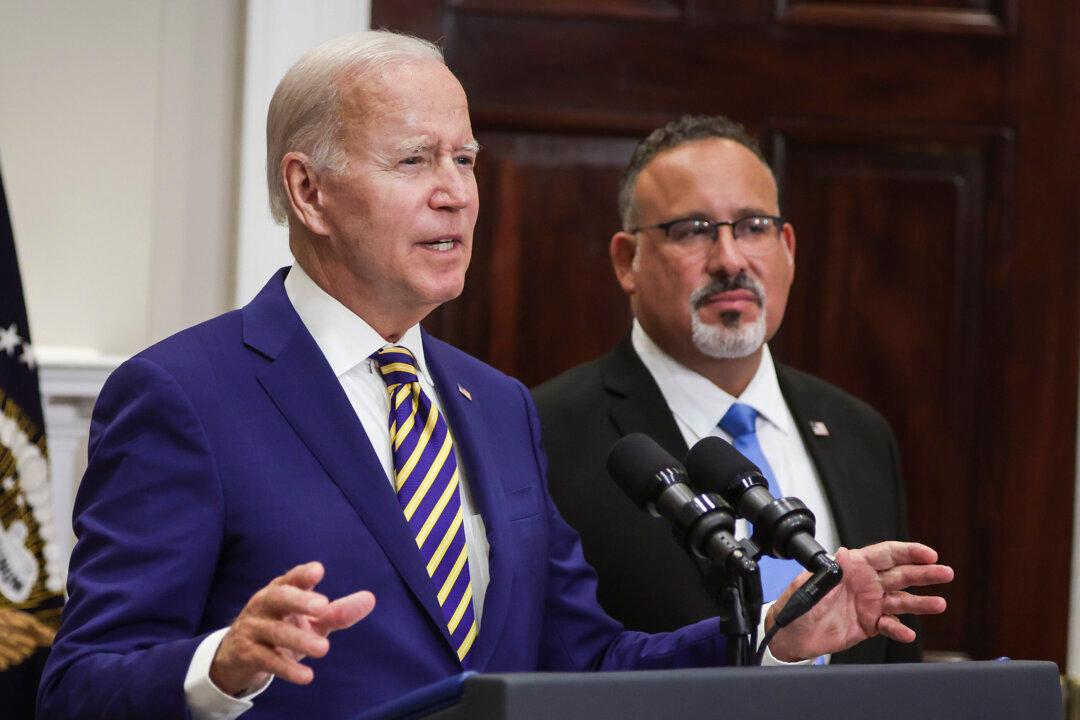President Joe Biden said on Aug. 24 that his administration will spend hundreds of billions of dollars to pay off $10,000 in federal student loan debt for some borrowers, amid widespread concern that the move will worsen the inflation crisis.
Individuals earning less than $125,000 a year or families earning less than $250,000 will be eligible for up to $10,000 in debt cancellation, the Education Department said. Pell Grant recipients who meet those income standards will be eligible for relief of up to $20,000; those grants are typically awarded to students from low-income households to help them cover their college expenses.





